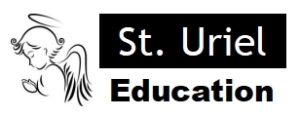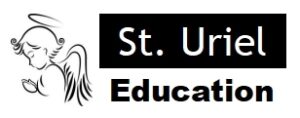Books on essay writing are the topic of our blog post today!
Essay writing stands as a cornerstone in education. It sharpens critical thinking, conveys ideas, and showcases understanding. Yet, mastering it isn’t just about practicing the act of writing. Reading, in all its wonder, plays a pivotal role too. By diving into books, students can absorb styles, structure, and nuances, essentially refining their own writing arsenal. It’s like training the mind, equipping it with tools for better essays. So, if one wishes to elevate their essay-writing game, turning pages is a brilliant place to start.
Image source: Unsplash
Books on Essay Writing
Here are our top picks for best books on essay writing
1. “The Elements of Style” by William Strunk Jr. and E.B. White
“The Elements of Style” by William Strunk Jr. and E.B. White is a classic in the realm of writing guides. Though not an essay writing service, this compact book acts as a mentor, offering writers techniques to enhance their craft. It champions the principles of clarity and brevity, urging writers to be concise and to the point. White and Strunk emphasize eliminating superfluous words, ensuring every word counts. For students and writers alike, this guide is a beacon, directing them towards crisp, clear, and effective prose in their essays.
2. “On Writing” by Stephen King
Stephen King’s “On Writing” provides an intimate look into the mind of one of the world’s most renowned authors. King delves deep, sharing personal anecdotes intertwined with invaluable insights on the craft of writing.
He firmly believes in the symbiotic relationship between reading and writing. According to King, a good writer must be an avid reader. Moreover, he emphasizes the necessity of discipline, asserting that consistent effort and dedication are key to refining one’s craft.
3. “Bird by Bird” by Anne Lamott
“Bird by Bird” by Anne Lamott offers a heartfelt dive into the tumultuous world of writing. Lamott presents her journey, riddled with challenges and moments of self-doubt, providing solace to writers everywhere.
One of her most resonating pieces of advice is on the nature of first drafts. She reassures that they are meant to be rough and imperfect. Lamott emphasizes that perfectionism is the adversary of creativity, urging writers to let go and simply get the words down, refining as they go along.
4. “How to Write a Sentence: And How to Read One” by Stanley Fish
Stanley Fish’s “How to Write a Sentence: And How to Read One” is a deep dive into the essence of sentences. Fish examines the intricate art and craft behind constructing a sentence, illuminating the rhythm, structure, and beauty inherent in them.
His analysis doesn’t just focus on the technicalities but ventures into what elevates a sentence from good to great. According to Fish, a great sentence captivates, conveying both meaning and emotion. It’s not just about stringing words together but creating a symphony that resonates with the reader.
5. “They Say/I Say”: The Moves That Matter in Academic Writing by Gerald Graff and Cathy Birkenstein
Stanley Fish’s “How to Write a Sentence: And How to Read One” is a deep dive into the essence of sentences. Fish examines the intricate art and craft behind constructing a sentence, illuminating the rhythm, structure, and beauty inherent in them.
His analysis doesn’t just focus on the technicalities but ventures into what elevates a sentence from good to great. According to Fish, a great sentence captivates, conveying both meaning and emotion. It’s not just about stringing words together but creating a symphony that resonates with the reader.
6. “Reading Like a Writer” by Francine Prose
In “Reading Like a Writer,” Francine Prose delves into the practice of absorbing literature through the discerning lens of a writer. Rather than just skimming pages, she promotes truly engaging with the text.
Prose champions the art of close reading, urging writers to dissect language, structure, and rhythm. By immersing deeply, one uncovers layers of craftsmanship, benefiting from insights that can be mirrored in one’s own writing. This method, Prose argues, not only enhances comprehension but also enriches the writer’s toolbox, nurturing the journey from reader to adept writer.
7. “The Sense of Style” by Steven Pinker
“The Sense of Style” by Steven Pinker is not your conventional style guide. Instead, Pinker brings a fresh, modern perspective, intertwining linguistics with style.
Pinker places a strong emphasis on coherence and clarity, advocating for a balance between rules and artistry in writing. But what truly distinguishes this guide is Pinker’s delve into the science of language. He unravels the psychology behind good writing, providing readers not just rules to follow, but an understanding of why certain styles resonate more deeply. This book stands as a bridge between traditional grammar and the evolving nuances of effective communication.
8. “Writing With Power” by Peter Elbow
Peter Elbow’s “Writing With Power” provides valuable insights into the liberating practice of free writing. Emphasizing the importance of letting ideas flow without judgment, he showcases techniques that many consider the best essay writing service one can give to oneself.
Elbow believes in the power of uncensored writing to generate raw, authentic ideas. To tackle the all-too-familiar writer’s block, he offers strategies that center on continuous writing without overthinking. By doing so, writers can navigate around mental barriers and unearth genuine thoughts and expressions, making the writing process both therapeutic and productive.
9. “The Writer’s Journey” by Christopher Vogler
“The Writer’s Journey” by Christopher Vogler explores the timeless pattern of the hero’s journey, a narrative structure pervasive in myths and stories worldwide. Vogler meticulously unpacks this universal motif, revealing its applicability to various forms of writing, essays included.
Understanding the hero’s journey allows writers to craft compelling narratives, even within the constraints of an essay. It offers a framework for organizing ideas and creating a flow that engages readers. With the wisdom gleaned from this book, one can construct essays that are not just informative but also captivating and resonant.
Conclusion
Reading is an indispensable ally in honing essay writing skills. The books discussed not only offer techniques but inspire deeper connections with words and ideas. To truly elevate one’s essay craft, immersing in these literary treasures is invaluable. By diving into these pages, readers can glean insights and strategies that will undoubtedly enrich their essays, making them more compelling and resonant. So, let the journey of exploration begin.
The post 9 Great Books on Essay Writing appeared first on Educators Technology.


Leave A Comment